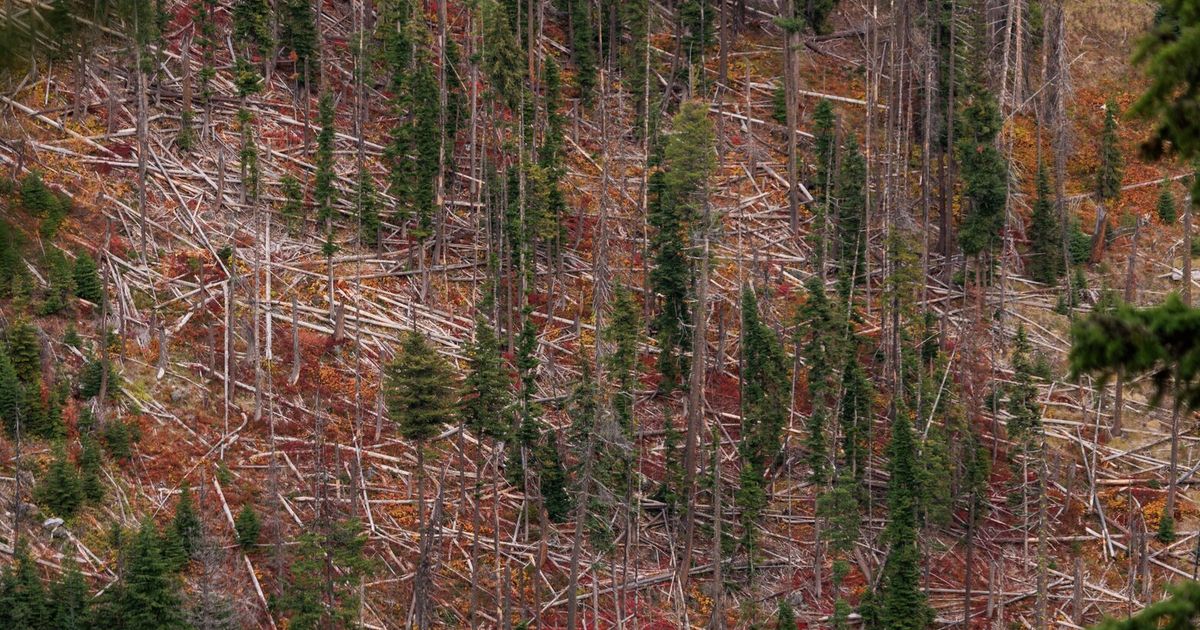WA community colleges to get $9 million to train workers on front lines of climate change
Eight other states and territories are also receiving money totally $60 million to develop a workforce to respond to climate change. Six Washington state community colleges will receive $9.26 million from the federal Inflation Reduction Act to expand and develop new curriculum related to the management of natural resources. The money will also increase the number of people working on the front lines of climate change, particularly Indigenous workers. The funding will support tribal students at community colleges and build a pipeline of technicians, directors, and other workers from Washington tribes or state agencies. These jobs can include water specialists, hydrologists, technicians in fisheries or forestry, and senior jobs that require bachelor's degrees. The projects across the U.S. are collectively called the “Climate-Ready Workforce Initiative”. Currently, natural resource programs at Washington community colleges lack sufficient information on climate adaptation and the cultural and administrative processes around working with tribes.

公開済み : 1年前 沿って Amanda Zhou の Environment
Six Washington state community colleges will receive $9.26 million to expand and develop new curriculum related to the management of natural resources and ultimately grow the number of people working on the front lines of climate change, especially Indigenous workers.
Eight other states and territories are also receiving money totaling $60 million to develop programs intended to train a workforce of people from underserved communities to advance climate resilience in coastal areas.
In Washington, the money, from the federal Inflation Reduction Act, will support tribal students at community colleges and build a pipeline of technicians, directors and other workers at Washington tribes or state agencies, like the Department of Natural Resources.
These jobs can include water specialists, hydrologists, technicians in fisheries or forestry and senior jobs that require bachelor’s degrees, like directors and program managers.
This program will seek to integrate climate adaptation and traditional Indigenous knowledge into the curriculum around fisheries, forestry and other natural resources management.
The projects across the U.S. are collectively called the “Climate-Ready Workforce Initiative.”. The National Oceanic and Atmospheric Administration announced the four-year grant funding Tuesday.
Currently, natural resource programs at Washington community colleges lack sufficient information on climate adaptation and the cultural and administrative processes around working with tribes, said Glenda Breiler, the director of tribal government affairs at Washington State Board for Community and Technical College and a member of the Colville Confederated Tribes.
Washington’s program is hoping to fix that but also increase the representation of tribal members who work in natural resource management across the state, she said.
In Washington’s application for the grant funding, the Colville Confederated Tribes said 146 jobs out of over 500 in their natural resource divisions are unfilled due to a lack of a skilled workers. With the shortage of qualified applicants, many of these jobs from tribal employers are going to nontribal members, Breiler said.
“As the first peoples of this land, Washington tribes have been leading the front lines of environmental protection and managing their lands since time immemorial” she said. “Tribal communities are the best protectors of natural resources as our culture, health and livelihoods are tied to the natural environment.”
The new state program, called the “Tribal Stewards initiative,” will also allow community colleges to hire a support staff member who will help tribal students with wraparound services like child care and transportation, said Irene Shaver, the climate solutions program manager at the state’s community college board.
College attainment for tribal students in the state is 9.7%, four times less than the state average, according to the grant application. Unemployment for tribal members is also three times higher than the state average and 72% of all tribal jobs are filled by nontribal employees.
The recipient community colleges include Peninsula College, which will collaborate with the Makah Tribe, Grays Harbor College with the Quinault Indian Nation, Green River College with the Muckleshoot Indian Tribe, South Puget Sound Community College with the Squaxin Island Tribe and Spokane Community College and Wenatchee Valley College with the Colville Confederated Tribes.
As part of the grant application, tribes, Washington public agencies and private companies, like Sierra Pacific Industries, have committed to hire graduates for internships and 465 jobs over four years. The grant will train 63 faculty members and 2,130 students across the six colleges and redesign 10 natural resource programs, according to a news release.
トピック: Climate Change, ESG
